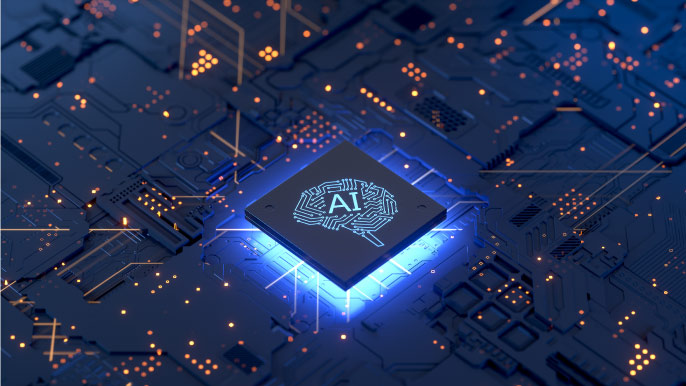Is AI a Tool or Threat for Legal Professionals?
March 1, 2024
Technology
Artificial Intelligence - Complementary Tool or Competitive Threat for Legal Professionals?
Historical (Unfounded) Fear of Technological Replacement
The apprehension surrounding AI in the legal profession is not an isolated phenomenon. Throughout history, every major technological breakthrough has been met with a mix of fear and skepticism, including concerns about the displacement of human labor. The invention of the printing press in the 15th century, for instance, was feared to be the end of the scribe's profession. But what happened instead was a huge expansion of knowledge, literacy, and an increase in written works, ultimately creating more jobs in publishing, education, and related fields. Similarly, the industrial revolution, which introduced machinery to automate manual labor, sparked concerns of widespread joblessness. However, it also laid the groundwork for economic expansion, new industries, and professions that were previously unimaginable.In the legal industry, the integration of technologies such as desktop computers, legal research software, and email, initially sparked concerns about the redundancy of traditional lawyering skills. But these technologies did not replace legal professionals—they revolutionized their roles. Lawyers and paralegals who once spent hours in libraries poring over case law could now access precedents with the click of a button, allowing them to dedicate more time to analysis, strategy, and client interaction. The digitization of court filings and the advent of email streamlined case management and communication. Far from diminishing the role of legal professionals, technology has consistently enhanced their efficiency, accuracy, and the scope of their services. This historical context serves as a powerful reminder that technology, while disruptive, is also a significant driver of progress and professional evolution.
Understanding AI's Role in the Legal Industry
AI's emergence in the legal industry addresses several pressing trends. Clients increasingly demand cost-effective services, pushing legal professionals towards solutions that maximize efficiency and transparency. AI's capability to automate routine tasks significantly reduces the time and cost of legal operations, aligning with client expectations for quality and affordability. Furthermore, the shift towards data-driven decision-making in law necessitates tools that can analyze extensive datasets to inform strategies and outcomes. AI-powered analytics offer a solution, enabling lawyers to base their decisions on comprehensive information.Lastly, the exponential growth in the volume and complexity of legal information calls for sophisticated management systems. AI technologies excel in organizing and processing vast amounts of data, ensuring legal professionals can access and utilize critical information effectively.
This enables lawyers to allocate more time to complex, high-value aspects of their work, such as formulating strategy and client counseling. While AI can sift through data with unmatched speed, it cannot replicate the nuanced judgment, emotional intelligence, and persuasive abilities of a skilled lawyer. AI should therefore be viewed as a tool that can significantly boost productivity and the quality of legal services.
Furthermore, the pervasive integration of AI across different domains of life and business introduces new legal challenges requiring new legal solutions. Issues surrounding data privacy, intellectual property rights in the context of machine-generated content, and the ethical use of AI in decision-making processes are becoming increasingly relevant. This creates demand for legal specialists in these areas, offering opportunities for lawyers to carve out new niches in emerging fields.
Legal AI Use Cases
As evidenced by seemingly everyday headlines about the emergence of AI tools in legal industry publications, there’s great interest in the various ways these tools will transform traditional legal functions. Among the various applications of AI, contract analysis and litigation support are two areas where AI significantly enhances the capabilities of legal professionals.Litigation Support Through Medical Record Chronology and Review
A compelling use case for AI in litigation involves the review of medical records, a task that is markedly improved by natural language processing (NLP). NLP, a subset of AI focused on the interaction between computers and human (natural) languages, enables the analysis of extensive textual information to extract relevant data efficiently. This technology is particularly beneficial in cases requiring the examination of complex medical records.One such tool is our recently launched Record Insights™, which extracts medical information and creates a user-friendly report summarizing relevant medical records. The complete medical history is summarized within a few pages with information displayed chronologically, allowing the user to search and filter the information by medical condition, date, body system, and more.
This technology can swiftly navigate through the dense medical documentation, identifying and extracting pertinent information with a level of precision and speed unattainable by human review alone. This not only accelerates the review process but also enhances the accuracy of the information gathered, providing legal professionals with a solid foundation for building a case or formulating a defense strategy.
Summarize thousands of pages of medical records quickly and inexpensively
Deposition Summary and Transcript Analysis
AI can also be used to analyze deposition transcripts, assisting legal professionals in extracting key information, identifying patterns, and gaining insights from large volumes of information. Algorithms can automatically extract relevant information from transcripts, such as names of individuals involved, dates, locations, and specific details mentioned during the deposition. By leveraging NLP techniques, AI can identify important keywords and key phrases within deposition transcripts that are crucial to the case.These examples—deposition transcript summaries and medical record chronologies—illustrate the profound impact AI is having on the legal profession. By automating rote, labor-intensive tasks, AI allows legal professionals to allocate their time to more analytical and client-focused activities. The use of AI in these contexts not only brings about operational efficiencies but also contributes to more informed decision-making and improved outcomes for clients. As the legal industry continues to embrace AI, these technologies are poised to become standard tools in the lawyer's arsenal.
Conclusion
The integration of legal AI is not a signal for obsolescence but an opportunity for growth, innovation, and enhanced service delivery. There’s sure to be some disruption but given the corresponding benefits we believe that the future of AI in legal is bright.Related Resources

WhitePapers
Technology
AI Technology and the Legal Industry
In this whitepaper we look at striking a balance between harnessing legal AI’s capabilities and navigating the regulatory landscape to fully leverage its benefits while upholding ethical and legal principles within the legal profession.
Read More
Articles
Legal Talent Outsourcing
The Incremental Approach: Driving Successful Adoption of Legal Tech
The digital revolution in the legal industry, as in any other, requires more than just the latest tech. It requires a thoughtful, human-centric approach.
Read More
Articles
Legal Talent Outsourcing
Revolutionizing Commercial Contract Management: The Crucial Role of Humans in AI-Driven Solutions
The successful integration of AI into contract management hinges on human expertise and AI capabilities.
Read More
